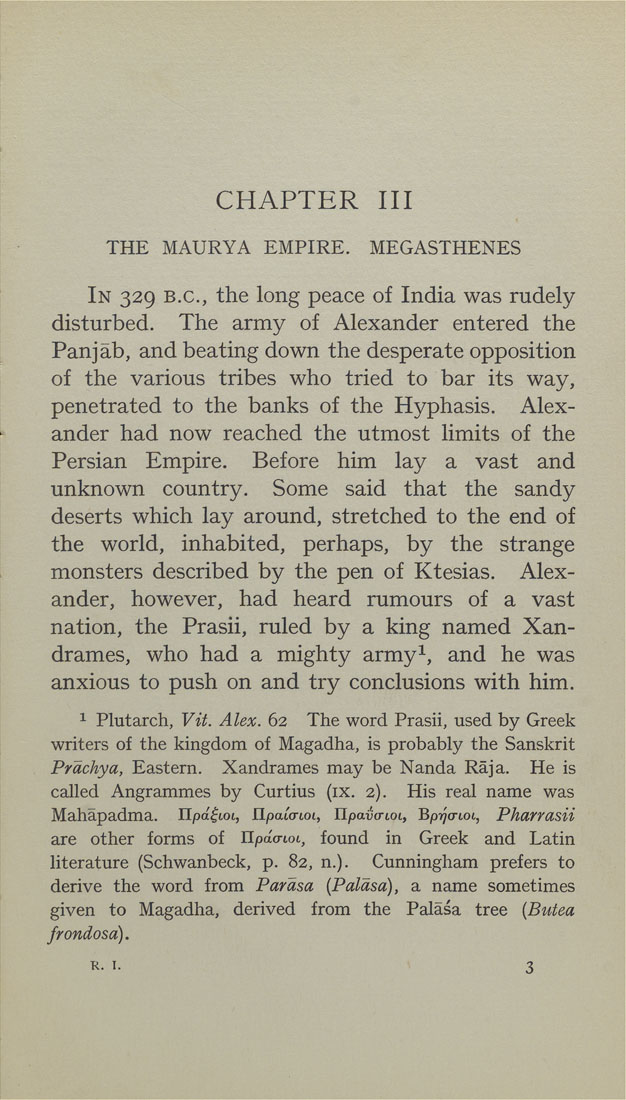CHAPTER III
THE MAURYA EMPIRE. MEGASTHENES
In 329 B.C., the long peace of India was rudely
disturbed. The army of Alexander entered the
Panjab, and beating down the desperate opposition
of the various tribes who tried to bar its way,
penetrated to the banks of the Hyphasis. Alex¬
ander had now reached the utmost limits of the
Persian Empire. Before him lay a vast and
unknown country. Some said that the sandy
deserts which lay around, stretched to the end of
the world, inhabited, perhaps, by the strange
monsters described by the pen of Ktesias. Alex¬
ander, however, had heard rumours of a vast
nation, the Prasii, ruled by a king named Xan-
drames, who had a mighty army^, and he was
anxious to push on and try conclusions with him.
1 Plutarch, Vit. Alex. 62 The word Prasii, used by Greek
writers of the kingdom of Magadha, is probably the Sanskrit
Prdchya, Eastern. Xandrames may be Nanda Raja. He is
called Angrammes by Curtius (ix. 2). His real name was
Mahapadma. Ilpa^iot, Ilpatcrtot, lipava-ioi, Bp7]cnoi, Pharrasii
are other forms of Updcnoi, found in Greek and Latin
literature (Schwanbeck, p, 82, n.), Cunningham prefers to
derive the word from Pardsa {Paldsa), a name sometimes
given to Magadha, derived from the Palasa tree {Butea
frondosa).
R. I. X
|








